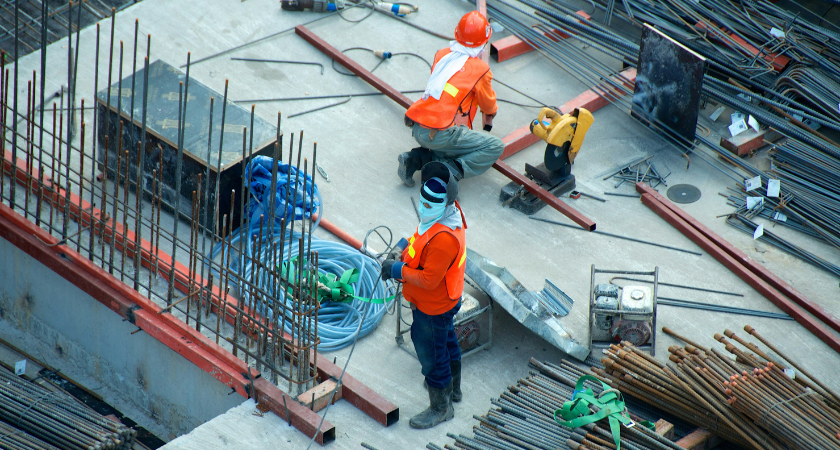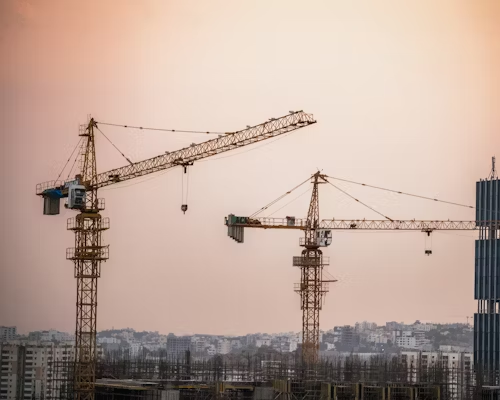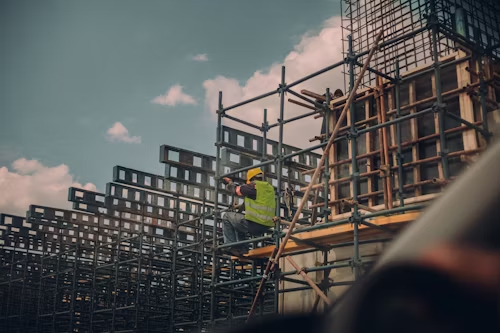
U.S. Construction Industry — Artificial intelligence (AI) is increasingly being deployed in the construction sector, promising improved efficiency, faster project estimating, streamlined processing of submittals and RFIs, and even contract review. However, experts warn that AI adoption could also have unintended consequences, including higher costs for materials, equipment, and labor.

Earlier this year, several construction companies filed class-action antitrust lawsuits against major equipment rental providers, alleging that AI tools were used to artificially inflate rental rates. The lawsuits, consolidated as In re Construction Equipment Antitrust Litigation (Case No. 1:25-cv-03487), are pending in the United States District Court for the Northern District of Illinois.
The plaintiffs contend that the “Rouse Rental Insights” (RRI) program, which aggregates confidential rental data using AI, has facilitated price-fixing. “By sharing their confidential pricing data with the RRI pricing tool and agreeing to use the AI-driven ‘RRI Price,’ the equipment rental providers have conspired to significantly increase rental prices,” the lawsuit states.
The RRI Price calculates optimal rental rates daily based on historical data, seasonal trends, and market fluctuations. While intended to help companies optimize pricing, plaintiffs argue that the tool limits competition, raising costs for contractors who often have no practical alternative to renting equipment.
“There are relatively few large equipment rental providers, buying equipment is often uneconomical, and higher rental rates don’t reduce demand,” the complaint notes. This combination, plaintiffs argue, creates a market environment that favors price escalation.
If the court upholds the RRI program, the outcome could set a precedent for AI-driven pricing models across other construction sectors, potentially affecting material costs, subcontractor rates, and labor pricing.

Industry analysts caution that while AI can enhance productivity and accuracy, it could also consolidate pricing power among a small number of providers, inadvertently driving up costs. Contractors may see higher bids for rented machinery, more expensive material procurement, and increased labor costs if AI tools are used to optimize project budgets in ways that favor the suppliers.
Rhiannon Davies, a construction technology consultant, notes: “AI offers enormous potential to streamline workflows, but it’s a double-edged sword. Without careful regulation and oversight, these tools can unintentionally concentrate market power, which ultimately hurts smaller contractors and the end consumers.”
The class action has also reignited discussions around antitrust oversight in AI applications, highlighting the need for transparency in algorithm-driven pricing tools. Legal experts say the litigation could shape how AI is deployed across industries where competition is limited, including construction, logistics, and manufacturing.
As AI continues to permeate construction, companies must balance efficiency gains with market fairness. Observers suggest that developers and contractors should monitor AI adoption carefully, ensuring it is used to improve productivity rather than inflate costs.
“The results of this lawsuit may determine how AI is utilized in the construction industry for years to come,” analysts warn. If the equipment rental providers prevail, similar AI pricing models could become widespread, potentially affecting material procurement, equipment leasing, and labor negotiations nationwide.
Originally reported by Noah Matthews, Zachary B. Stewart of Bradley Arant Boult Cummings LLP in The National Law Review.